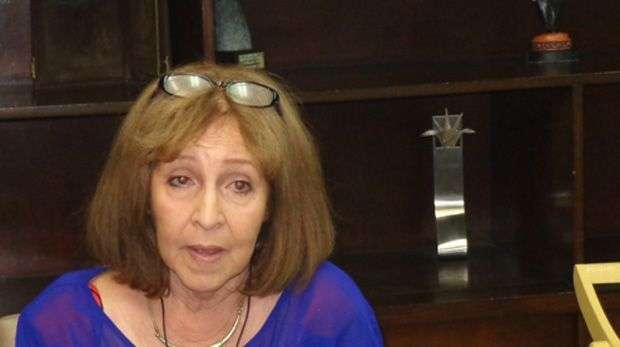The Cuban filmmaker Marina Ochoa confessed to OnCuba she is wary of certain films that are conceived from a supposed gender when in fact suffer from a “hell of sexism”. These “false prophets” and certain obsolete mechanisms inherited from socialism came under attack by the founder of what was born as Mediatheque of Cuban filmmakers, and now works to grow as an association with everything…
From the outset, she said that “there is a feminine look in the audiovisual, characterized by a transgressive thought that there has to be at the tremendous, perhaps more refined. Yet there are many filmmakers whose reference patterns are works done by men, and tend to imitate them unconsciously. Humberto Solas, being a man, had that gender perspective, but now there are even asexual works … “she says.
All comes from a biological difference that affects even the social constructions of our role, Marina tells me vehemently, but she is careful to give me examples by name. “If you tear apart most contemporary productions you realize that there is a lot of sexism, with the desire to do something with a gender perspective. You cannot betray your essence, you can learn and improve, but some people have a sexist essence they cannot deny. Cuban cinema is full of works dedicated to women, and that does not make them with a gender perspective, “she says.
I try to bring her to the topic that interests me and she doesn’t duck: the restructuring process ICAIC is living, the home of Cuban cinema. “I’m participating in all meetings, and all women and men out there hope for the best. You must keep your feet on the ground, we’re not the same. You have to make drastic and serious changes, because we cannot continue to function as before. A new reality has been imposed. It’s smart to have it into account, with its complexity, and decisions when trying to assume that there is a complex film scene with much wealth. And I say Cuban cinema wherever is made. It is an explosion of dissimilar talent, initiative and judgment. And that can only be positive, “she emphasizes.
In particular she rages against the rampant piracy phenomenon, with carte blanche that many are still trying to explain. “Piracy affects all filmmakers, and we fight against this problem from the institution. We are proposing that if the banks will be able to sell our films with impunity, their owners have to pay a tax which funds go to Cuban cinema, “Marina, journalist and sociologist by training adds. She has been for many years immersed in the world of film and on the role of women in it.
She also expects a greater role of the filmmakers behind the ICAIC restructuring, which for half a century has had only two women who have directed fiction films: the late Sara Gomez and Rebecca Chavez, a difference between them of nearly 40 years. For now they working to organize the Cuban film studios, whether directors, screenwriters, producers, costume designers, actresses, anyway … And she wants both residents in Cuba and in the Diaspora. Something moved in a recent exchange between filmmakers from both sides, with screenings in Los Angeles, New York and Miami.
In her space no one discriminate against men, because it is precisely to unite. She highlights for good the complexity of contemporary Cuban cinema, but stresses the need to set foot on the ground. “We do not need paternalism, but tools for working in this challenging landscape.”










